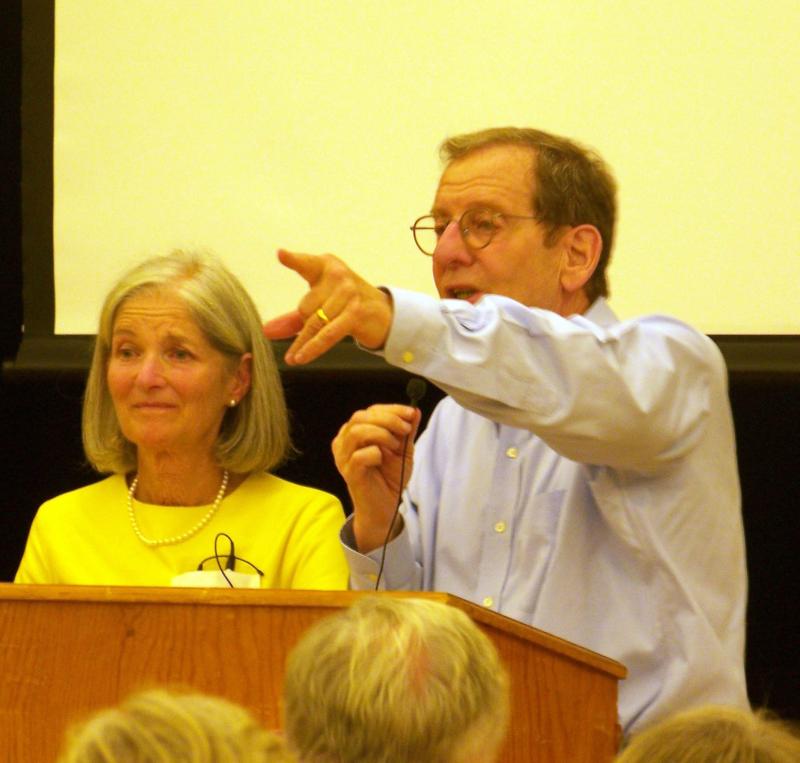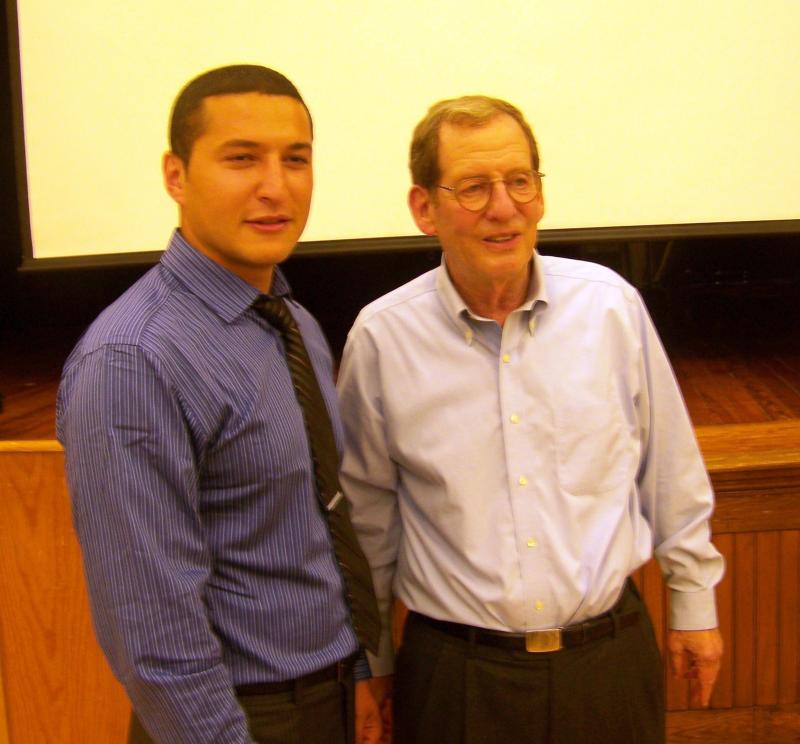Marion gets lesson on Azerbaijan from U.S. Ambassador
According to Richard Morningstar, a U.S. Ambassador, Azerbaijan is a country at a crossroads. The United States is interested in the nation's energy, human rights record, and counter terrorism efforts.
“Most Americans know very little about Azerbaijan, but I can tell you that it is a very important and strategic country, and its also incredibly complicated and challenging,” he said. “To realize the strategic importance of the country, all you have to do is look at a map.”
Morningstar and his wife Faith, part-time Marion residents, spoke to a well-informed audience on Wednesday night in the Marion Music Hall. The Sippican Historical Society and the Elizabeth Taber Library sponsored the joint lecture. Afterwards, the couple fielded questions.
Faith spoke about her efforts to improve women’s rights while Richard spoke to his ambassador duties.
Straddling Europe and the Middle East, the country borders Iran, Russia, Georgia, Armenia, and Turkey. The Caspian Sea lies to the west.
From the embassy, located in the capital city Baku, Richard said the Russian border is a two-hour drive; Iran is just three hours away. That proximity to the Middle East joined the countries in the fight against terrorism.
Also, Azerbaijan has troops stationed in Afghanistan to support the United State’s military actions there.
Before President Obama appointed him as ambassador in 2012, Richard served as the Secretary of State’s Special Envoy for Eurasian Energy. Known for its crude oil and natural gas reserves, Morningstar said the U.S. will protect those supply lines, while promoting human rights and democracy to keep the region stable.
However, energy isn’t the embassy’s sole concern.
“People say all we really care about in Azerbaijan is energy. That’s not true. First off, we’re not going to get a molecule of energy from the Caspian Sea. Europe will get some. Considerably more important priorities are the geopolitical issues and the democracy and human rights issues,” he said.
Changing attitudes about women in the country’s predominant secular Muslim society has been Faith’s mission.
Taking inspiration from a Boston-based networking event, she launched a program that hosts women with business careers once a month. It provides support for women in a country that has a, “glass ceiling that is very, very low in height.”
Her second initiative, called Azerbaijan Women’s Development, seeks to empower women. With 50 people in professional and academic fields supporting the program, its focus is improving women’s lives through health, culture, fitness, and conflict resolution, among other areas.
Audience members questioned Azerbaijan citizens perception of the United States, the country’s media, and the amount of influence Washington D.C. has on Richard’s day-to-day activities.
One question came from a young Azerbaijan citizen. Tural Aghabalayev, a student at Cape Cod Community College, asked Richard how the embassy protects human rights.
Richard said it’s not easy: “We can’t wave a magic wand.” He added the embassy strives to show Azerbaijan leaders it’s in their interest to protect human rights for economic and stability reasons.
Aghabalayev, a member of Azerbaijan Americans for Democracy, said he is passionate about reforming his country. He spoke about the importance of fair elections, education, and eliminating corruption.
Before taking questions, the couple ended on a light note and mentioned Azerbaijan’s varied and beautiful terrain.
Of the world’s 11 climate zones, Azerbaijan is home to nine, Richard noted. Across the country, there are areas that feature cold climates in the mountainous regions, to mildly hot and wet areas in the northeast, and even an area of semi-desert.
“It’s unbelievably beautiful,” he said. “I definitely support the Azerbaijan board of tourism. Hopefully, in the time we’ll be there all of you will show up.”

















